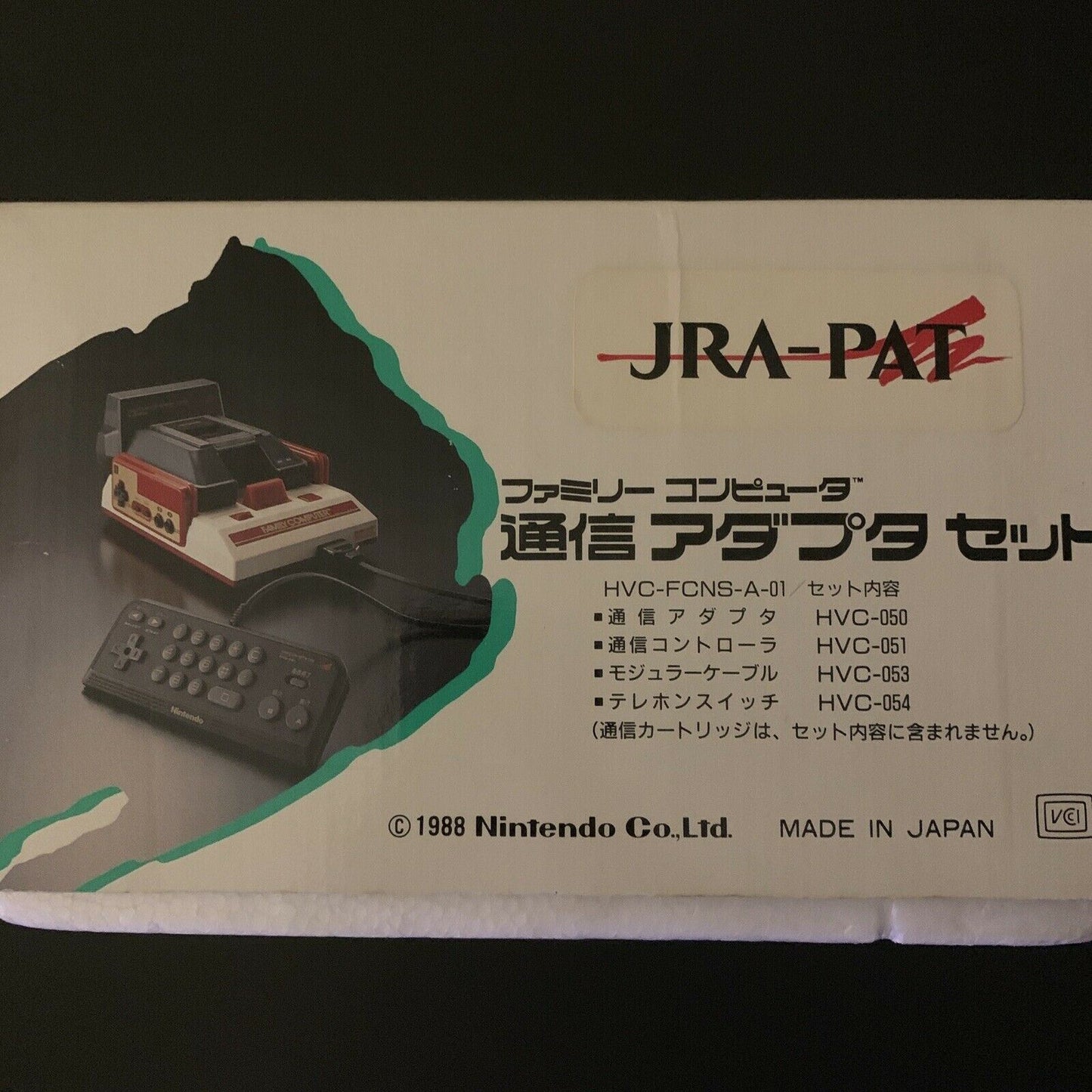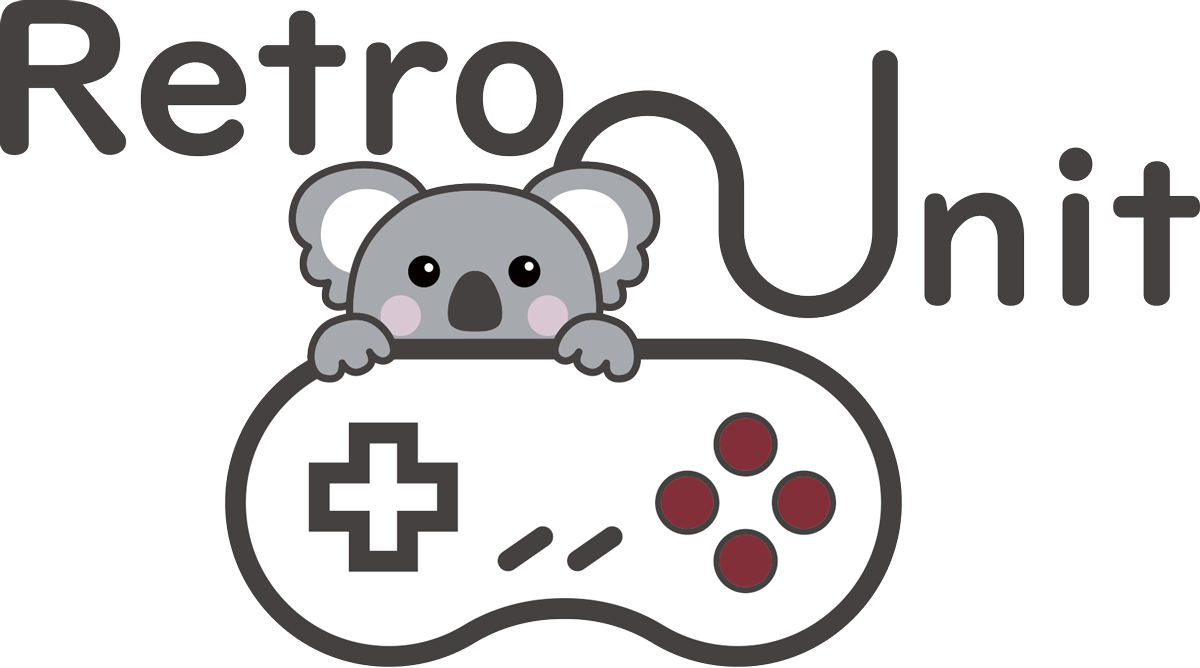Retro Unit
Nintendo Famicom - Family Computer Network System w Modem, Controller +Card RARE
Nintendo Famicom - Family Computer Network System w Modem, Controller +Card RARE
Stock Available: 0
Couldn't load pickup availability
Nintendo Famicom - Family Computer Network System HVC-FCNS-A-01. Sent with Australia Post Standard Parcel.
Complete system. Hasn't been used! Note this is for the Japanese Nintendo Famicom!The Famicom Network System (Family Computer Network System, Japanese: ファミリーコンピュータ ネットワークシステム), also referred to as the Famicom Modem was Nintendo's first known online platform for a home console, specifically the Famicom (Japanese version of the Nintendo Entertainment System). It was released in Japan in September of 1988, and is a dial-up modem that attaches to the Famicom, supporting its own special cartridges. The cartridges, known as Tsuushin Cartridges compared with a Famicom Game Pak (which are of a rectangular shape excluding where their connector part is) appear as long, rectangular vertical portrait-shaped cards.
The service was part of a collaboration between Nomura Securities (specialising in financial services, global investments, financial securities) and Nintendo. The focus for this platform was not on online video games (though the released Konami licensed Tsuushin Shogi Club game for the Famicom Network System possibly was one, and some prototypes were conceived including an online version of Go) in this case, on request of the Nintendo president at the time Hiroshi Yamauchi).
The main services for the service (but possibly not limited to) was live stock trading, horse race betting (the most popular software; later re-released on other consoles), race boat betting and information on video game reviews moderated by a network of toy stores (transmitted through the 1991 introduced Super Mario Club software and service).
History
Development
In 1986, Nintendo's entry into basic online communications was the Disk Fax kiosks, preannouncing the deployment of 10,000 kiosks throughout Japan's toy and hobby stores within the following year. This allowed Famicom players with Famicom Disk System games to bring their writable Disk Cards into stores and upload their high scores to the company's central leaderboards via fax, enter nationwide achievement contests, and download new games cheaper than on cartridge.[4]:75–76[5][6][7][8]
By 1987, Nintendo president Hiroshi Yamauchi foresaw the impending information age, developing a vision for transforming Nintendo beyond a toy company and into a communications company. He wanted to leverage Famicom's established and totally unique presence in one third of all of Japan's homes, to bring Nintendo into the much larger and virtually limitless communications industry and thus presumptively on par with Japan's largest company and national telephone service provider, Nippon Telegraph and Telephone (NTT). He believed the Famicom should become an appliance of the future, as pervasive as the telephone itself.[4]:76–78 Beginning in mid-1987, he requested the exploration of a partnership with the Nomura Securities financial company, to create an information network service in Japan based on the Famicom. Led by Famicom's designer Masayuki Uemura, Nintendo Research & Development 2 developed the modem hardware; and Nomura Securities developed the client and server software and the information database. Uemura cautioned that they "weren't confident that they would be able to make network games entertaining". Five unreleased prototypes of network-enabled games were developed for the system, including Yamauchi's favorite ancient Japanese board game, Go.
Production




Br140
Shipping & Returns
Shipping & Returns
Our team aim to pack, check and dispatch orders within 24 hours of receiving your order Monday to Friday. Where an order is placed after 2pm AEST on Friday it may not be dispatched until Monday. During the Christmas holiday season, orders may take more than 24 hours before dispatch.
Overseas deliveries leave our warehouse every Wednesday.
We have a 30-day return policy, which means you have 30 days after receiving your item to request a return.
To be eligible for a return, your item must be in the same condition that you received it, unworn or unused, with tags, and in its original packaging. You’ll also need the receipt or proof of purchase.
To start a return, you can contact us at info@retrounit.com.au. If your return is accepted, we’ll send you a return shipping label, as well as instructions on how and where to send your package. Items sent back to us without first requesting a return will not be accepted.












Customer Testimonials
Proudly rated 4.8/5 from 1000+ customers
-
Amazing item. Just like on the photo. Quick shipping, will buy from again!
Official Nintendo Wii Motion Plus Wiimote Black Controller + Nunchuck + Cover
Jennifer
-
Came fast and in great condition
Nintendo Gameboy Pocket Green Console Pokemon Case & Pokemon Green Game
Jonathan
-
Exactly what I needed
Genuine Nikon MH-65P Battery Charger for EN-EL12 ENEL12 Batteries
Bytemark
-
Very quick to post and good condition.
Once Upon A Time In The West (DVD, 1968, 2-Disc Set)
M. Green
-
Excellent value, very good condit. Sent fast. Smooth purchase. Nothing beats vinyl for listening to music!
ABBA - ABBA Vinyl Record LP 1975
Murphy
-
Excellent no problems would buy from again thank you
Super Mario 64 - Nintendo 64 NTSC-J Japan N64 Game
Sage












